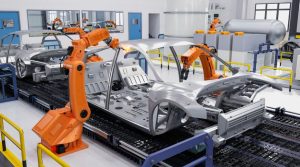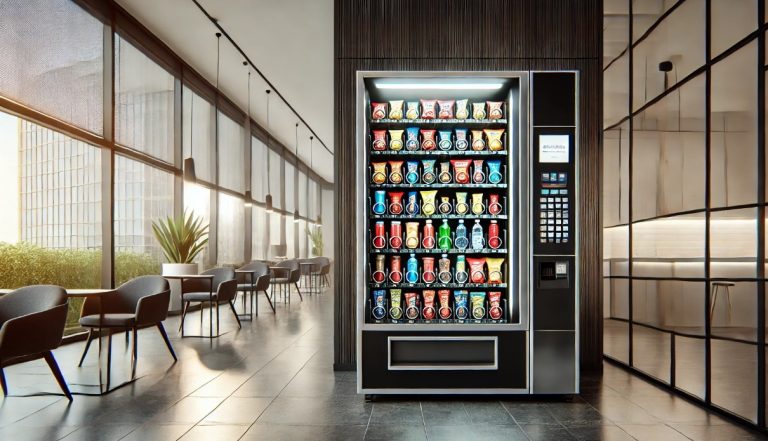Innovative Startups Revolutionising Custom Manufacturing
The manufacturing landscape is undergoing a dramatic transformation, driven by innovative startups that are redefining what’s possible in custom production.
These forward-thinking companies are leveraging cutting-edge technology, sustainable practices, and customer-centric approaches to revolutionise how we think about bespoke manufacturing.
From digital fabrication to on-demand production, these startups are not just changing the game they’re creating entirely new playing fields.
The Digital Revolution in Custom Manufacturing

The rise of digital-first manufacturing startups has fundamentally altered the traditional production paradigm. Companies are now utilising advanced CAD software, AI-driven design tools, and automated manufacturing processes to deliver highly customised products at scale.
This digital transformation enables manufacturers to offer unprecedented levels of personalisation whilst maintaining competitive pricing and rapid turnaround times.
One particularly noteworthy area of innovation is in sheet material processing, where startups are offering services like cut to size MDF with precision that was previously only available to large industrial clients.
These companies have democratised access to professional-grade manufacturing capabilities, allowing small businesses, makers, and hobbyists to access high-quality custom materials with the same ease as ordering from an online retailer.
3D Printing and Additive Manufacturing Pioneers
Additive manufacturing startups are pushing the boundaries of what’s achievable through 3D printing technology. Beyond simple prototyping, these companies are creating end-use products in materials ranging from biodegradable plastics to advanced metal alloys.
The ability to produce complex geometries that would be impossible through traditional manufacturing methods has opened up entirely new design possibilities.
These startups are particularly excelling in sectors such as healthcare, where custom prosthetics and medical devices can be tailored to individual patients, and aerospace, where lightweight, complex components can be produced on-demand.
The reduction in material waste and the elimination of tooling requirements make additive manufacturing an increasingly attractive option for custom production runs.
Sustainable Manufacturing Solutions
Environmental consciousness is driving a new wave of eco-friendly manufacturing startups. These companies are innovating in areas such as biodegradable materials, circular economy principles, and energy-efficient production processes. They’re proving that sustainability and profitability can coexist in the manufacturing sector.
Many of these startups are focusing on local production models, reducing transportation emissions whilst supporting regional economies.
By utilising renewable energy sources and implementing closed-loop systems, they’re setting new standards for environmentally responsible manufacturing practices.
On-Demand Manufacturing Platforms
The emergence of platform-based manufacturing startups has created new opportunities for both manufacturers and customers.
These digital marketplaces connect businesses needing custom parts with local manufacturers who have the capabilities to produce them. This model reduces overhead costs, minimises inventory requirements, and enables rapid scaling of production capacity.
These platforms often incorporate sophisticated matching algorithms that consider factors such as material requirements, production capabilities, geographic proximity, and delivery timelines. The result is a more efficient allocation of manufacturing resources and reduced costs for end customers.
Advanced Materials and Smart Manufacturing

Startups specialising in advanced materials are revolutionising the possibilities for custom manufacturing. From self-healing polymers to shape-memory alloys, these new materials are enabling products with previously impossible characteristics.
Smart manufacturing technologies, including IoT sensors and machine learning algorithms, are optimising production processes in real-time.
The integration of artificial intelligence in manufacturing processes allows for predictive maintenance, quality control optimisation, and adaptive manufacturing parameters. These technologies ensure consistent quality whilst reducing waste and downtime.
Micro-Manufacturing and Precision Engineering
The rise of micro-manufacturing startups has made precision engineering accessible to smaller-scale projects. These companies utilise advanced CNC machinery, laser cutting systems, and micro-moulding techniques to produce intricate components with tolerances measured in micrometres.
This precision capability is particularly valuable in industries such as electronics, medical devices, and luxury goods, where minute details can significantly impact functionality and aesthetics.
The Future of Custom Manufacturing
Looking ahead, the custom manufacturing sector shows no signs of slowing its innovation pace. Emerging technologies such as molecular manufacturing, quantum computing applications in design optimisation, and advanced robotics promise to further revolutionise the field.
The convergence of these technologies with traditional manufacturing expertise is creating unprecedented opportunities for startups to disrupt established industries.
As these innovative companies continue to push boundaries, we can expect to see even more personalised, sustainable, and efficient manufacturing solutions emerge.
The startups revolutionising custom manufacturing today are laying the foundation for tomorrow’s production ecosystem one that’s more responsive, sustainable, and accessible than ever before. Their innovations are not just changing how we manufacture; they’re reshaping what we can imagine creating.







